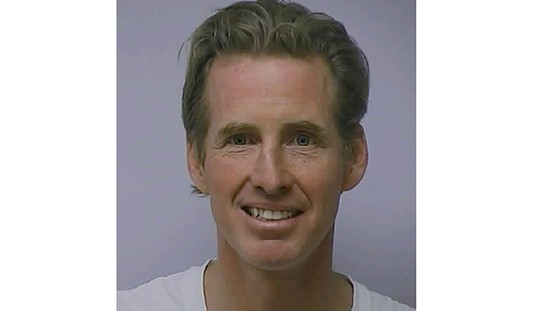Last week, The New York Times‘ Bella DePaulo seized on a study from Switzerland, claiming that it destroyed the “ideology” of marriage. She argued that any positive benefits from marriage are outweighed by divorce, and that the negative impacts of divorce should be considered the results of marriage. But a Harvard professor eviscerated her arguments with longstanding research showing a definitive link between lasting marriage and health benefits.
“Marriage is unlikely to bring lasting improvements to their health or well-being, and could even result in decrements,” DePaulo wrote. “Free of the myth that marriage is a magical potion, we can all pursue the life paths that suit us best. Marriage is still there for those who want it. But now people who prefer to live single can come out of the shadows.”
The New York Times author attempted to disprove the “ideology” of marriage: “Find that one special person, marry him or her and you will have someone who loves you and cares for you for the rest of your life. You will have the most important adult relationship, the one everyone wants. Because you have it, you will be happier and healthier than you were when you were single — and morally superior, too.”
Tyler J. Vanderweele, a professor of epidemiology at the Harvard School of Public Health, did not defend this rosy view, but he did defend the link between health and marriage — and explain why DePaulo was wrong to interpret the Swiss study the way she did.
“The existing research indicates that marriage is associated in longitudinal studies with higher life satisfaction, greater affective happiness, better mental health, physical health, and longevity, even controlling for baseline health,” Vanderweele explained, citing study after study.
“It’s also linked to higher level of personal growth, a reduction in crime for those at high risk, higher levels of meaning and purpose in life, higher levels of positive relationships with others, higher levels of perceived social support, and lower levels of loneliness, and better financial outcomes, even controlling for baseline financial status and education,” the professor added.
If this is true, where did DePaulo go wrong? Well, the Swiss study in the Journal of Social Forces published in March did indeed show that marriage is associated with slightly worse self-rated health compared to always being single, and that divorce is associated with worse self-rated health compared to being married.
“But self-rated health is not necessarily synonymous with health itself,” Professor Vanderweele wrote. “If one examines more objective measures studied elsewhere in the research literature, marriage is in fact protectively associated with more objective health measures.”
Vanderweele cited his own research at Harvard University, using data from the Nurses’ Health Study which followed over 74,000 participants for over 16 years. His research found that marriage was associated with 14 percent lower mortality during the following 16 years, even after controlling for variables.
A meta-analysis of 53 studies found that marriage decreased mortality rates by 10 percent compared to unmarried people, and 14 percent compared to those who were divorced.
Even the Swiss study DePaulo championed admitted that marriage is associated with various benefits. The study began by admitting that entry into marriage is associated with lower depression and large increases in life satisfaction afterward. It also found that divorce is associated with higher depression and decreasing life satisfaction afterward. “The New York Times article seems to try to sidestep these results,” Vanderweele explained.
DePaulo emphasized, over and over again, that married people have lower self-reported health. But does that mean they are truly less healthy? “Someone who marries, and perhaps subsequently has children, may end up sleeping less, exercising less, or gaining weight, and might then score ‘self-rated health lower,” Vanderweele explained. But research indicates married people have better objective health, no matter their self-rated health.
When it comes to reporting on science, the Harvard professor pointed to a problem in “the reporting of the research, and in the over-reporting of a single study with what often seems to be total ignorance of the cumulative evidence of the research literature. DePaulo’s New York Times article is a sad illustration of this.”
But DePaulo argued that if fewer people got married in the first place, fewer people would then get divorced. “Imagine that a pharmaceutical company, in testing a new drug, found that 40 percent of the people on the drug refused to keep taking it. Then imagine that the company simply ignored those people, or included them with the people who never took the drug,” The Times author wrote.
Divorcees are a result of marriage, as are married people, the argument goes. Therefore, if the results of divorce are more negative than the results of marriage, marriage itself is worse overall than not getting married in the first place. Now, that’s a powerful argument.
Vanderweele responded by proposing a “more sensible solution” than just encouraging people not to marry in the first place, namely “to develop support resources to work through marital difficulties, when appropriate.” In fact, one study found that among those who were married and rated their marriage as “very unhappy” but stayed married, 77 percent said five years later that the same marriage was either “very happy” or “quite happy.”
Marriage isn’t a panacea, but one study does not undermine the decades of research showing a clear link between steady marriage and greater objective health. This does not mean that marriage is for everyone or that it solves all of life’s problems.
The pseudo-worship of marriage in many quarters (especially in Christian churches) is indeed a problem, but the research shows clear health benefits associated with stable marriage, and negative results from divorce. This isn’t a myth, even if DePaulo wishes it were one.
Again, this does not mean every single person should get married, or that every divorce is wrong. In fact, long-term marriage has the strongest impact on prolonging life in old age, and that means that if someone wants the benefits of marriage, he or she will need to choose a spouse very carefully.
These are general trends, and social science has its limits. But the research is clear — marriage is still a good and healthy thing, struggles and all. Oh, and The New York Times should be read with a grain of salt.








Join the conversation as a VIP Member